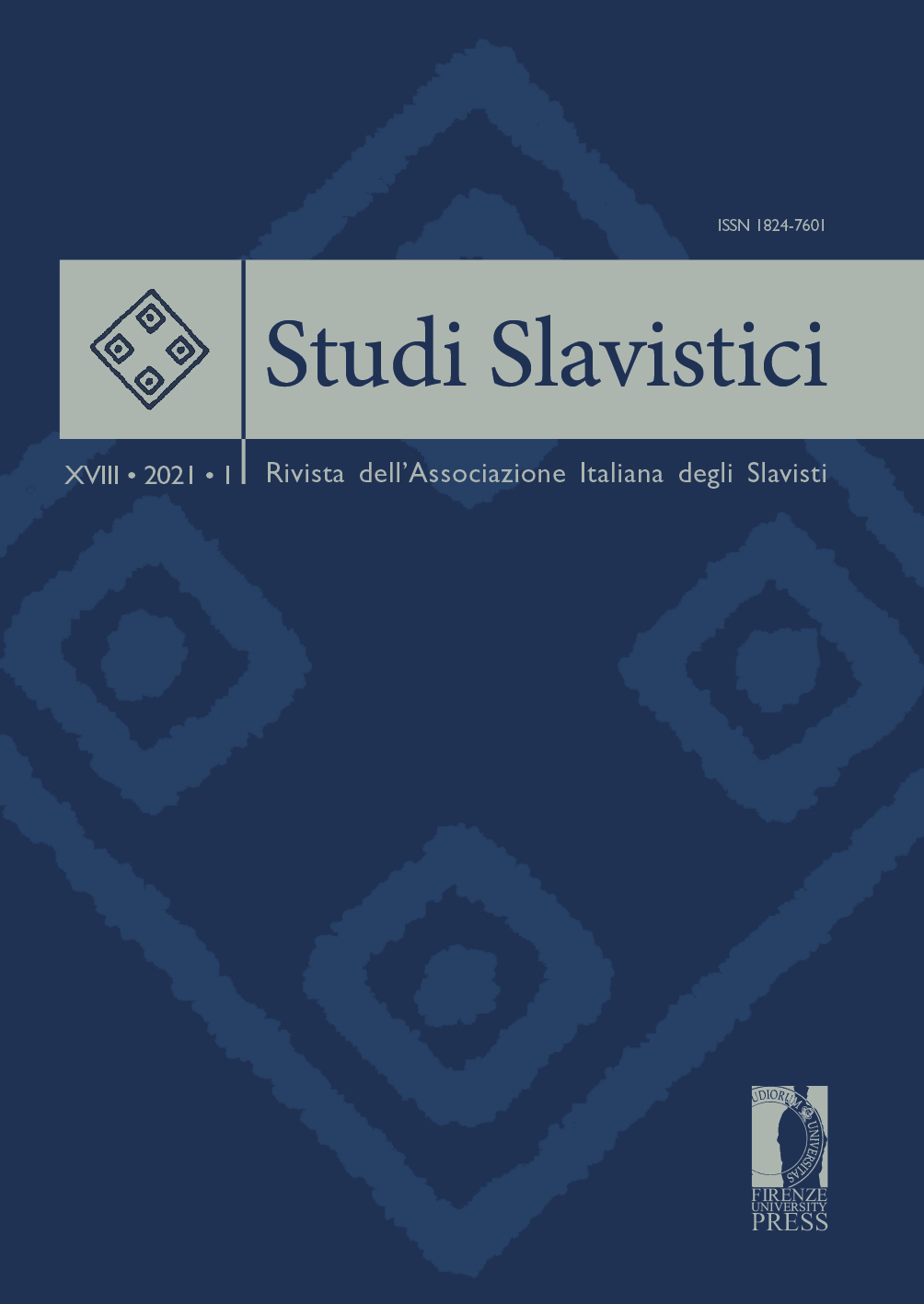Published 2021-07-20
Keywords
- Winfried Sebald,
- Aleksej Makušinskij,
- Writers in Self-Exile,
- Multilingual Discourse,
- The Transitory Literary World
Abstract
In modern literary criticism, the concept and so-called genre ‘migration literature’ is commonly associated with the experience of exile, often for political reasons; by contrast, writers who have left their country for reasons other than political are labelled as ‘migrant-writers’, ‘writers abroad’, or ‘diaspora writers’. The use of such a different terminology to categorise authors and their writings highlight the fact that there are some distinctive characteristics distinguishing them.
While I do share this perspective to a certain degree, I also would like to draw attention to a major literary trend of the last two decades: the appearance of writers who expatriate voluntarily without being persecuting politically but yet are in a situation which I define as ‘self-exile’ or ‘voluntary exile’. Despite their different languages and countries of origin and residence, an analysis of their texts demonstrates that these authors are united by two common features: 1) a reflection on the tragic past of their compatriots, who have experienced forced mass emigration, and an attempt to find echoes of this experience in everyday life; and 2) an awareness of their own position (that is, the situation of self-exile) as a productive process and creative basis for their writing work.
The hypothesis I suggest in this paper is that the texts written by ‘writers who are in self-exile’ are characterised by certain writing strategies and themes typical of migrant writers yet they also have some unique features, which are related to the voluntary experience of leaving their home country. Home is to be understood broadly, not in terms of a certain geopolitical location, but as belonging to one single culture, community, and language. The aim of this article is to examine these very features.
This article focuses on the novels by two famous contemporary authors: Aleksej Makušinskij (Russia/Germany) and Winfried Sebald (Germany/United Kingdom). In their works, the representation of the condition of self-exile has led the authors to develop a multilingual discourse and recreate the new transitory literary world.


